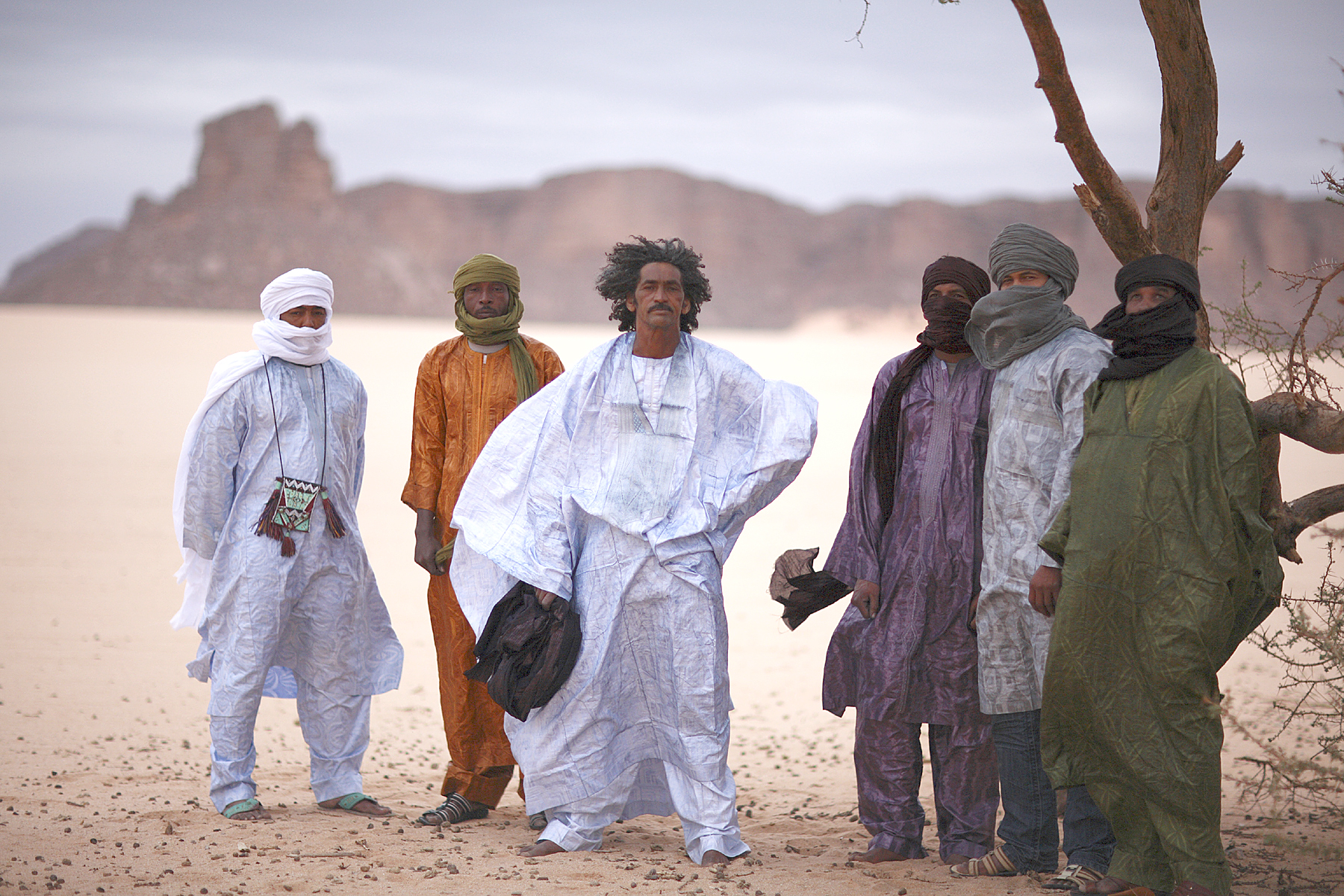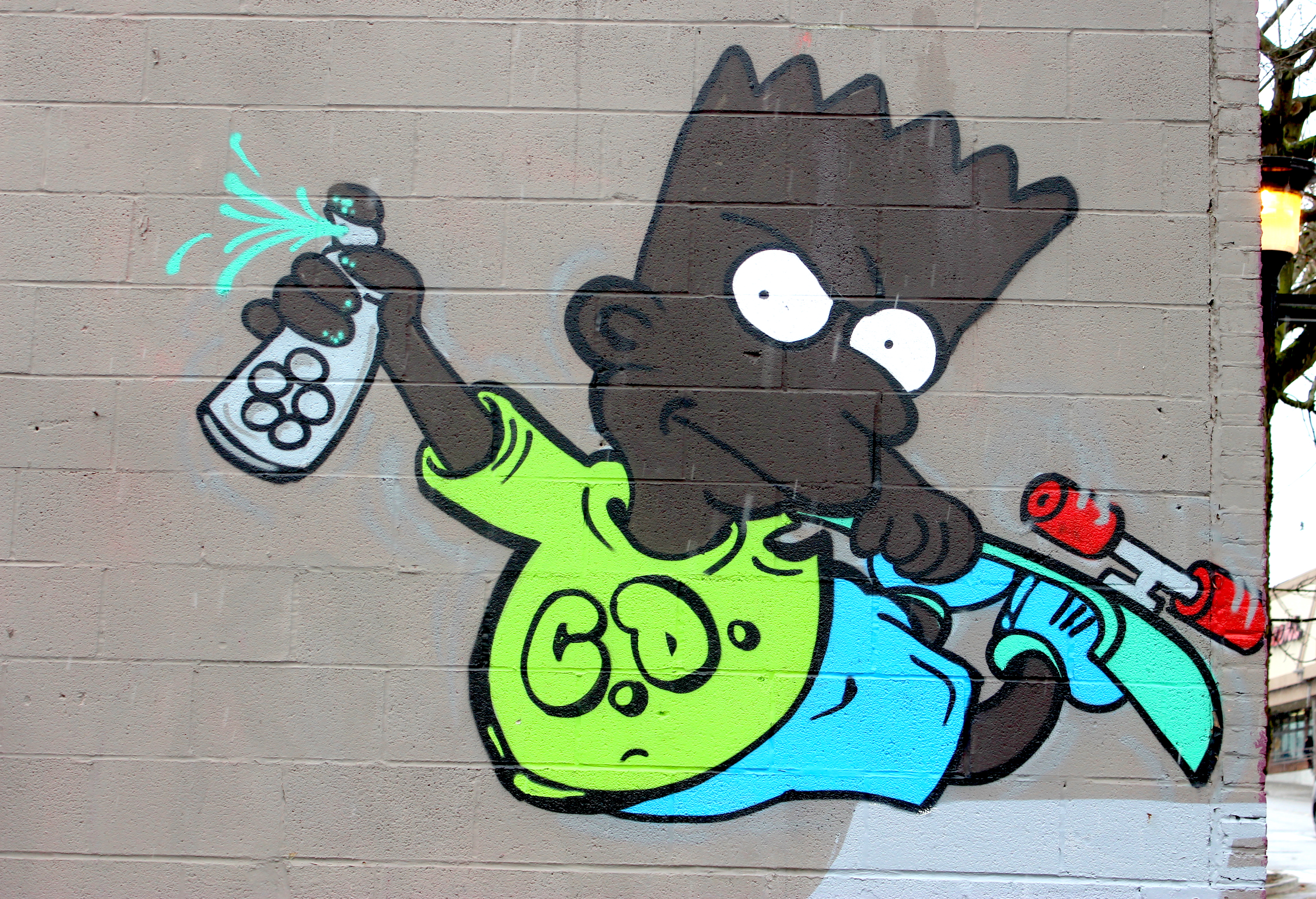At age 4, Ibrahim Al Alhabib, the founder of Malian desert-blues group Tinariwen, saw his father executed during the Tuareg rebellion of 1962–1964. His father, like many Tuareg rebels, was fighting for the establishment of independent nations in the Sahara following the end of French colonial rule. The new unified Malian government’s response was brutal. Men, women, and children were slain and tortured during the rebellion, a horrific episode inextricably woven within the band’s music.
Formed in 1979, Tinariwen’s ascent has been slow and steady, picking up steam with a handful of its later releases, like 2011’s Tassili and its latest, Emmaar. Now singed to Anti Records, the group and its assouf style, a distinct mix of guitar-driven blues and traditional Tuareg rhythms and poetry, has collaborated with acts like TV on the Radio and Carlos Santana, all while attracting the accolades of rock ambassadors like Robert Plant. The band’s popularity is perhaps due in part to its authenticity (its members put down their instruments and picked up weapons in a separate 1990 Tuareg rebellion). Emmaar is the band’s first release created outside the deserts of the Sahara, due to yet more political strife. Though the place they recorded it—Joshua Tree, Calif.—does have a certain poetic justice.
Through a translated e-mail (group members speak only Tamasheq and French), we recently contacted Tinariwen bassist Eyadou Ag Leche, who shared some thoughts on the universality of music and the band’s similarities to American blues.
SW:
A popular Seattle band, Rose Windows, has often cited Tinariwen as a big influence. Is it strange to count so many fans in the United States now, given how distinctly Tuareg your music is? What do you think accounts for the universality of your music despite its highly specific background?
Eyadou Ag Leche: Music is universal despite of language barriers. Maybe people get connected naturally to our own music thanks to its authenticity! We are very grateful and honored to have so many fans around the world and especially in the U.S. There are similar elements between American blues and our music (we call our music assouf, [which means] “our nostalgia”). We do share common themes—exile, suffering, love—that you can feel in the music. Maybe this is a part of the explanation why we have so many fans in the U.S.!
As a band that has so thoroughly identified itself with the deserts of Mali, both lyrically and politically, can you speak to the importance that the concept of place holds in your music, and the function of music in general?
It’s our main inspiration. Our desert is part of us, wherever we go. Places are fundamental in music in general. Wherever you are, you have the ability to be inspired, or not, by the environment around you. It’s something that naturally directs your music, your art in general. Our desert is part of our culture and traveling with us.
You often speak of the inseparability of music and politics in the Tuareg culture. As a band that has been through so much suffering in the past, does the turmoil you revisit daily through the words of your songs ever weigh heavily on you? Or does it help relieve that emotional weight?
It’s important for us to spread our message about what is happening to our community. People get interested about it or not, it’s up to them. We’ve decided to use music to spread our message, but music is also naturally part of our culture. This is our daily life!
What advice do you have for young musicians who are fearful of mixing politics and music? It used to be commonplace in the U.S., but now the two very rarely mix in contemporary pop.
It’s up to the musicians; it needs to be natural and to be authentic, if you want the people to understand and feel your message.
There is a distinctly trance-like quality to your music—is this purposeful, or just happenstance?
Our music is inspired by our desert, by ancestral Tamasheq poetry, and by traditional Tuareg music, like the Tinde transe [a drum trance], which is mainly based on percussion, and on the singing of women. The percussion rhythms are inspired by the camel dance which gives this specific character to our music—altogether with the sound of electric guitars, of course, that we’ve been plugging on our low-battery amps since our debuts! All these elements define our music.
ksears@seattleweekly.com
TINARIWEN Benaroya Hall, 200 University St., 215-4800, seattlesymphony.org/benaroya. SOLD OUT. All ages. 7:30 p.m. Mon., April 14.








